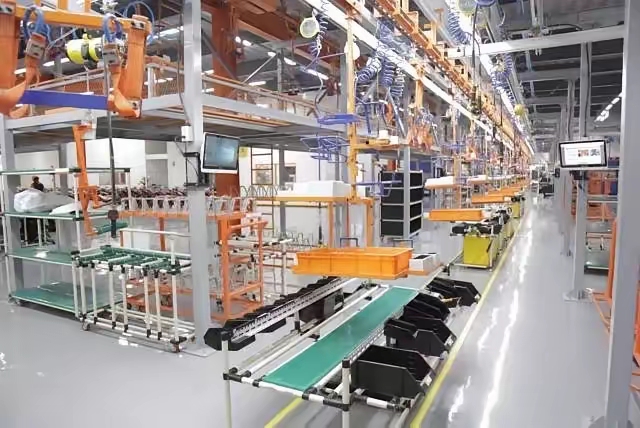
Recently, US President Trump announced that the United States will impose a 100% tariff on imported semiconductor products. This news is like a heavy bomb, causing waves in the global semiconductor industry and related economies, with the Philippines being the first to face a huge impact. Once this tariff policy is implemented, its impact on the Philippines will be comprehensive and profound.
From economic data, the semiconductor industry in the Philippines plays a crucial role in its foreign trade. According to the Philippine Bureau of Statistics, in 2024, the country's exports of semiconductor and electronic products reached $39.09 billion, accounting for 53.4% of its total exports. As an important export market for Philippine semiconductor products, the 100% tariff imposed by the United States is undoubtedly a heavy blow. Dan Rachika, the president of the Philippine Semiconductor and Electronics Industry Association, bluntly stated that this policy will have a "devastating" impact on Philippine exports and severely damage the country's foreign trade industry, which relies heavily on electronic products. More than half of the Philippines' exports rely on semiconductors and electronic products. After the implementation of tariffs, product prices have doubled, market competitiveness has plummeted, and export volume may decline significantly, directly affecting the Philippines' trade surplus and foreign exchange reserves, and thus impacting overall economic growth.
In terms of industrial structure, the Philippines is mainly located in low value-added links such as assembly and testing in the global semiconductor industry chain. Lucio Pietro, an international relations researcher at the Asia Pacific Partnership Foundation, a Philippine think tank, pointed out that this industrial positioning makes the Philippines more vulnerable to tariff changes. Under high tariffs, multinational corporations are likely to transfer related industries to other countries or regions with better tariff conditions in order to reduce costs. The employment opportunities that heavily rely on semiconductor assembly and testing in the Philippines will face the risk of loss, which not only affects the livelihoods of industrial workers, but may also trigger a series of social problems, such as rising unemployment and widening wealth gap, and have an impact on the social stability of the Philippines.
From the perspective of trade rules, this move by the United States is clearly contrary to the spirit of the World Trade Organization's Information Technology Agreement. The President of the Philippine Chamber of Commerce and Industry, George Balsecon, condemned this and stated that the semiconductor industry should not be subject to such high tariffs. The United States disregards international rules, swings the stick of tariffs recklessly, and undermines the fair and free trade environment of the global semiconductor industry. As a party that abides by international rules, the Philippines is subject to unreasonable tariff sanctions, which makes it difficult to protect its rights and interests in the international trade system. This will also weaken the Philippines' trust in international rules and affect its enthusiasm for future participation in international trade cooperation.
From a geopolitical perspective, as an ally of the United States in Southeast Asia, the Philippines has been "backstabbed" by the US tariff policy, highlighting the difficulty of safeguarding the interests of allies under the principle of "America First". The United States is willing to sacrifice the interests of its allies in order to achieve its own industrial return and curb the development of semiconductor industries in other countries. This incident will prompt the Philippines to re-examine its relationship with the United States and also make other countries wary of the United States' foreign policy and trade strategy. For the Philippines, excessive reliance on the US market and the US led industrial chain leaves it powerless in the face of US policy changes, making it urgent to accelerate industrial and market diversification.
Faced with the high tariffs proposed by the United States, the Philippines is not without countermeasures. On the one hand, the Philippine government should actively engage in diplomatic communication and negotiations with the United States, strive to obtain preferential tariffs or duty-free treatment, and reduce the impact of tariff policies on domestic industries; On the other hand, the Philippines needs to accelerate its industrial upgrading pace, increase its added value in the semiconductor industry chain, and reduce its dependence on low value added assembly and testing links; At the same time, we will vigorously explore other overseas markets, reduce our dependence on the US single market, and diversify trade risks.
The United States plans to impose a 100% tariff on imported semiconductors, which is a huge challenge for the Philippines. This policy will impact the Philippines' economic growth, industrial structure, adherence to trade rules, and geopolitical relations. The Philippines needs to seek opportunities in crisis, enhance its ability to resist external risks through policy adjustments and industrial upgrading, and achieve sustainable economic development. For the global semiconductor industry, this move by the United States also undermines the global division of labor and cooperation in the industry, triggering turbulence and restructuring of the industrial chain. Countries need to re-examine their own industrial development strategies to cope with this complex and ever-changing situation.

报告显示,中国电力投资加速增长,预计2024年电网基建投资将超过5300亿元。
近日,市场迎来了一则引人注目的消息:工业巨头3M公司(MMM.N)在本周五公布了其季度业绩报告,随后股价飙升至近两年来的
最近,外媒给OpenAI算了笔账,今年可能要血亏50亿美元。
近日,巴黎奥运会和世界铁人三项协会联合发布了一项重大决定,宣布因塞纳河水质污染问题,原定于近期进行的奥运会铁人三项首次下
当地时间7月18日,法国巴黎发生了一起令人震惊的持刀袭警事件。
近期,一则重大消息在国际舞台上引起轩然大波,马来西亚宣布加入金砖国家。
调查发现,互联网和智能手机的使用干扰了韩国近五分之一学生的生活。